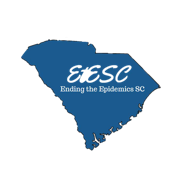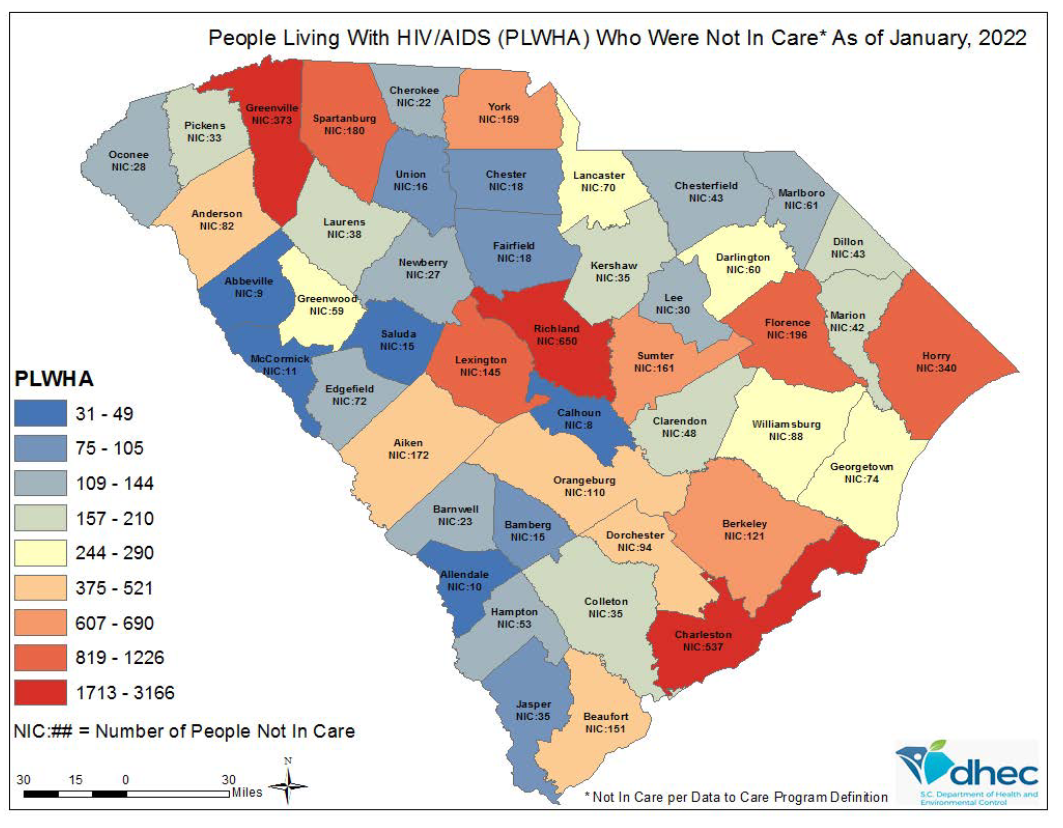To ensure you’re receiving the most up-to-date and accurate information, please choose the correct agency from the homepage. The DHEC website is no longer being updated and will be permanently unavailable Dec. 31, 2024.
Vision Statement
Our vision is a South Carolina free of new cases of HIV, STDs, Viral Hepatitis and Substance Use Disorders
Motto
Stay Safe · Get Tested · Treat Early · End Stigma
Program Description
Our statewide effort, known as Ending the Epidemics SC (EtE SC) focuses on HIV, STDs, Viral Hepatitis, and Substance Use Disorders. EtE SC is guided by a community-lead Steering Committee, whose members are located throughout South Carolina. Currently EtE SC is concentrating its efforts heavily on Ending the HIV Epidemic (EHE). We thank the CDC, whose funding makes this dedicated EHE effort possible. With extensive feedback from a series of statewide and regional forums – held online in 2020 due to the Coronavirus pandemic with several exclusively for People Living With HIV (PLWH) and several in Spanish – a plan was developed to End the HIV Epidemic. This EHE Plan will be implemented along with the work of our larger EtE SC vision.
Purpose
Ending the HIV Epidemic (EHE): A Plan for America is the U.S. government’s aggressive plan to end the HIV epidemic in the United States by 2030. The SC EHE plan aligns with the national plan to achieve and sustain viral suppression and reduce new infections. As with the national plan, South Carolina’s goal is to reduce all new HIV infections by 75% during the first five years of the initiative and by 90% in 10 years.
- At the heart of the South Carolina EHE plan are four fundamental strategies or pillars:
- DIAGNOSE all individuals with HIV as early as possible after infection;
- TREAT HIV infections rapidly after diagnosis and effectively in all people who have HIV, to help them get and stay virally suppressed;
- PREVENT HIV infections using proven prevention interventions, including PrEP and syringe services programs; and
- RESPOND rapidly to potential HIV outbreaks to get prevention and treatment services to people who need them.
In addition to the CDC, our local and other national allies are critical to our efforts. Many are listed in the EHE Plan in the Acknowledgements section. Key among our ongoing allies are:
- People Living With HIV (PLWH), who contribute his/her/their wisdom to our efforts.
- SC HIV Planning Council
- Our two “Fast-Track Cities”: Our capital city, Columbia, and our major port city, Charleston. Mayor Stephen K. Benjamin of Columbia and Mayor John J. Tecklenburg of Charleston each signed the Paris Declaration to End the HIV Epidemic by 2030. As “Fast-Track Cities”, Columbia and Charleston are committed to achieve the 90-90-90 targets of 90% of people living with HIV knowing their HIV status, 90% of people who know their HIV-positive status on treatment, and 90% of people on treatment with suppressed viral loads.
- Prevention Access Campaign, which spearheaded the Undetectable equals Untransmittable (U=U) campaign.
- And hearty congratulations on its 35th Anniversary to Palmetto AIDS Life Support Services (PALSS). Formed in 1985, PALSS was the first AIDS Service Organization in South Carolina.
Invitation to Act
Together we can achieve our vision. Here are ways you can get involved:
- Join the EtE SC Statewide Workgroup.
- All meetings will be online until further notice.
- Join an Ad Hoc Workgroup like the EtE SC World AIDS Day Committee.
- All meetings will be online until further notice.
- Send us your information of how you would like to be involved
For more information, contact
- Charmella Tyler, Steering Committee Member- ctyler@bjhchs.org
- Felicia M. Pickering, DHEC Advisor – pickerfm@dhec.sc.gov
- Elizabeth McLendon, Community Advocate – EtESC2030@gmail.com

